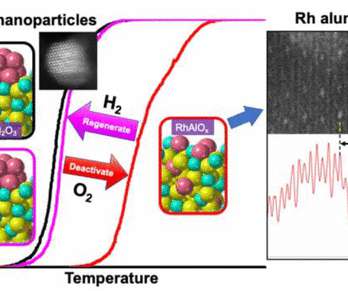OSU, Ford study provides insight into more efficient use of Rhodium in TWC applications
Green Car Congress
APRIL 11, 2022
A study by a team from The Ohio State University and Ford is providing insight into the deactivation mechanism of rhodium in three-way catalysts (TWC) for automotive emissions control. The study, which could enable more efficient usage of rhodium in TWCs, is published in the ACS journal Chemistry of Materials.








































Let's personalize your content